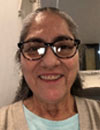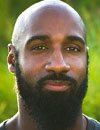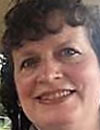In this webinar, brain injury survivors, caregivers and others with the lived experience of disability will learn ways to be successful when participating in team projects. Project leaders will learn what works and doesn’t work when engaging people with the lived experience of brain injury.
The content of this webinar is based on brain injury survivors’ experiences in the National Center on Advancing Person-Centered Practices and Systems (NCAPPS) Brain Injury Learning Collaborative from January 2020 to August 2021.
During this time, teams in 15 states worked toward aims to make brain injury services more person-centered.
Each team included members with the lived experience of brain injury. In addition, the Learning Collaborative included three faculty members who were brain injury survivors and experienced advocates.
The three faculty members and lived experience advisors created a vibrant community of advocates within the Learning Collaborative. This community positively impacted not only the individuals involved, but also their teams, the Collaborative, and the larger brain injury community, serving as a model for successful survivor engagement.

Carole Starr sustained a brain injury in a car accident, which left her unable to return to her life as an educator and classical musician. Over time, Carole reinvented herself. She’s now a national keynote speaker, the author of the award-winning book To Root & To Rise: Accepting Brain Injury and the founder/facilitator of Brain Injury Voices, a nationally recognized survivor volunteer group. Carole is a member of the NCAPPS faculty.

Kelly Lang has been a brain injury survivor, caregiver, and advocate for 20 years. She served on the board of the Brain Injury Association of Virginia for 6 years and was recently on the faculty of the NCAPPS Brain Injury Collaborative. Kelly is currently a member of the Brain Injury Association of America’s Advisory Council and the Virginia Brain Injury Advisory Council. Kelly has also presented to local, state, and national groups.

Maria Martinez holds degrees in Art Education and English as a Second Language from University of Northern Colorado. She has worked in the fields of domestic violence and corrections. Maria is a survivor of a stroke and a brain injury. Maria is a support group leader, peer mentor, brain injury advocate and non-profit Director. She is a board member of the Colorado Advisory Board, Professional & Lived Experience Contributor to the NCAPPS Learning Collaborative and National TBI TARC.

Rodney Smith is a U.S. Army veteran, father, grandfather, and TBI survivor and advocate. He sustained brain injury when a pickup truck failed to see him and crossed the road in front of his motorcycle. Rodney got involved with the Brain Injury program in West Virginia with the hope that he could help people with TBI, and their families have better lives and avoid the frustrations he went through trying to find right help after his accident.

Eric Washington sustained concussion and spinal cord injury while playing football for the University of Kansas. After recovering from his injury, he graduated with a bachelor’s degree in Applied Behavioral Sciences. Today, he is a passionate advocate for TBI survivors of color, and TBI survivors who are homeless. Eric served as a faculty member on the NCAPPS Brain Injury Learning Collaborative and was particularly instrumental in supporting brain injury survivor support groups in Colorado.

Austin Duncan is a severe TBI survivor and medical anthropologist working with the Sonoran Center for Excellence in Disability and Department of Pediatrics at the University of Arizona. His NSF-sponsored research focuses on the sociological intersections and public policies of neurological disabilities, including Traumatic Brain Injury (TBI). He teaches courses in disability studies to students with the UA College of Medicine and College of Social and Behavioral Sciences.

Amy Robinson is a proud parent/caregiver and advocate for her 11-year-old son who has multiple special health needs. She is also an assistant professor in the Department of Communication Sciences and Disorders at University of North Dakota (UND) where she supervises support groups for patients with an aphasia diagnosis. Prior to UND, Amy spent 20+ years working for Robbinsdale, MN public schools as a speech-language pathologist. She regularly consults with North Dakota Brain Injury Network and received her Certified Brain Injury Specialist (CBIS) certification in Spring of 2020.
Resources:
NCAPPS is an initiative from the Administration for Community Living and the Centers for Medicare & Medicaid Services to help States, Tribes, and Territories to implement person-centered practices. NCAPPS webinars are open to the public, and are geared toward human services administrators, providers, and people who use long-term services and supports. All NCAPPS webinars will be recorded and archived at https://ncapps.acl.gov.